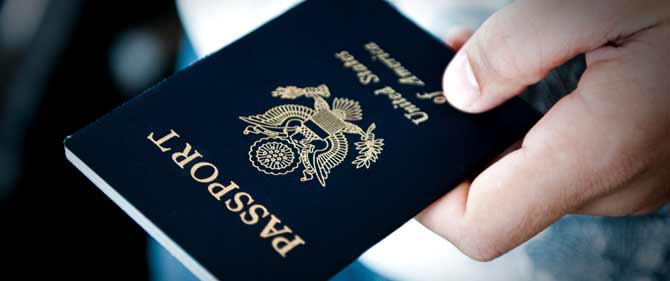

One of the most serious consequences of a criminal conviction for many people is the restriction that might be placed on their freedom to travel because of the revocation of an individual's passport.

Passports Being Revoked Because of Criminal Records
The fact that the United States issued more than 13.5 million passports in 2013 attests to the importance people place on preserving their right to travel. It also points out the importance of knowing and understanding your rights concerning your passport if you are convicted of a crime.
A passport is a convenient way for governments to verify that the person carrying it is a citizen of the country from which it was issued. A U.S. passport issued to an adult is valid for 10 years.
Passports do nothing more than identify a person and their country of citizenship. They do not guarantee that a person will be allowed to enter or leave a country, but a person who does not have a valid passport will be usually be denied entry into a country.
Federal laws allow the U.S. Department of State to revoke a passport that was obtained through illegal or fraudulent means or that was issued in error. It may also revoke a passport that is altered or misused. A criminal record does not automatically lead to revocation of a person's passport, but revocation may be requested by federal or state law enforcement agencies.
Passport revocation requests by a law enforcement agency may be granted for several reasons, including:
A law enforcement agency that wants to prevent a person from fleeing the country may request revocation of the person's passport by the Department of State. This might happen when an individual arrested and charged with committing a crime has a prior criminal record. If the criminal record combined with the new charges could result in a lengthy prison sentence, the individual might be considered to be a flight risk.
The revocation process begins with a letter on the official letterhead of the requesting law enforcement agency to the Department of State. The following information and documents must be included with the letter:
Once the request is approved, the revocation information is shared with government databases that can be accessed by law enforcement agencies and border control agencies, around the world. The purpose of the worldwide notification by the Department of State is to prevent a person from traveling on a revoked passport.
The revocation and notifications to other agencies will remain in place until the requesting law enforcement agency notifies the Department of State that the revocation is no longer required. Once that happens, the passport must be surrendered by the law enforcement agency that was holding it to the Department of State.
An individual may appeal a decision to revoke a passport by requesting an administrative hearing with the Department of State. The hearing is held within 60 days of the receipt Department's receipt of the written request for a hearing.
Hearings are held before a hearing officer designated by the Department of State. Hearings are held in private with only the person challenging the revocation, the individual's attorney and witnesses for the Department of State are allowed to attend. The Deputy Assistant Secretary for Passport Services reviews the written findings of fact of the hearing officer and decides whether to uphold the revocation.
The decision of the Deputy Assistant Secretary for Passport Services is final and cannot be reviewed through further administrative appeals. The only option for a person whose passport revocation is upheld is to commence a federal court action requesting judicial review of the decision.
Federal privacy laws and regulations restrict the sharing of an individual's criminal record information with officials from foreign countries. Foreign officials may gain limited access to passport information held by the Department of State through a formal written request. The requesting government must identify the purpose for which the information is requested. Generally, information will only be shared if it is needed in a pending criminal investigation or prosecution.
If you do not yet have a passport and were trying to find out if your criminal record would prevent you from obtaining a passport, please read our article on obtaining a passport with a criminal record. Find more legal articles in our articles database.
Travel.state.gov, (2014). Passport Information for Criminal Law Enforcement Officers. [online] Available at: https://travel.state.gov/content/passports/english/passports/information/legal-matters/passpoirt-information-for-criminal-law-enforcement-officers.html
Ecfr.gov, (2014). eCFR — Code of Federal Regulations. [online] Available at: https://www.ecfr.gov/cgi-bin/text-idx?SID=5e34cbc0796f15682ca0d897309daf5e&tpl=/ecfrbrowse/Title22/22cfr51_main_02.tpl